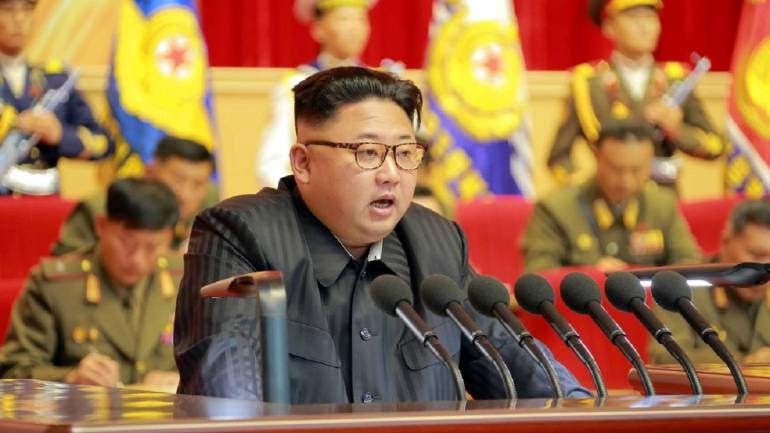North Korean leader Kim Jong-un has reportedly paid an unexpected visit to Beijing, arriving by armored train (the Kim family’s ancestral ride) in the Chinese capital yesterday.
The trip, if confirmed, would be Mr. Kim’s first outside of North Korea since he took power in 2011, and would mark the first time China has granted the impetuous young leader a meeting with President Xi Jinping.
It’s unclear which side asked for the meeting, but clearly the prospect of a high-stakes summit between Kim and US President Donald Trump this spring — as well as Kim’s upcoming planned encounter with South Korean President Moon Jae-in — has set things in motion between Beijing and Pyongyang.
What might each side want out of this heavily-cloaked meeting?
President Xi will certainly wish to align with — and influence — Kim ahead of any direct talks between Pyongyang and the US. And by welcoming Kim on his first foreign trip, Xi is signaling to the White House that the route to any deal with the US must still go through Beijing. Xi will also presumably press Kim to find out whether the North Korean leader is sincerely considering scaling down his nuclear ambitions, or whether his recent overtures are a play for time to develop more nuclear capability.
Kim, for his part, presumably wishes to show he’s still got the backing of his powerful patrons in Beijing, even though China has regarded him more as a headache than as an asset in recent years. And he’ll want to know what China will seek to extract, and underwrite, as part of any rapprochement with Washington. China’s position is crucial to any negotiating strategy for Kim.
Again, Kim may not, in fact, be in Beijing — we will know more soon. But if he is, it would mark a potentially significant turning point in one of the most intractable global security challenges today.
